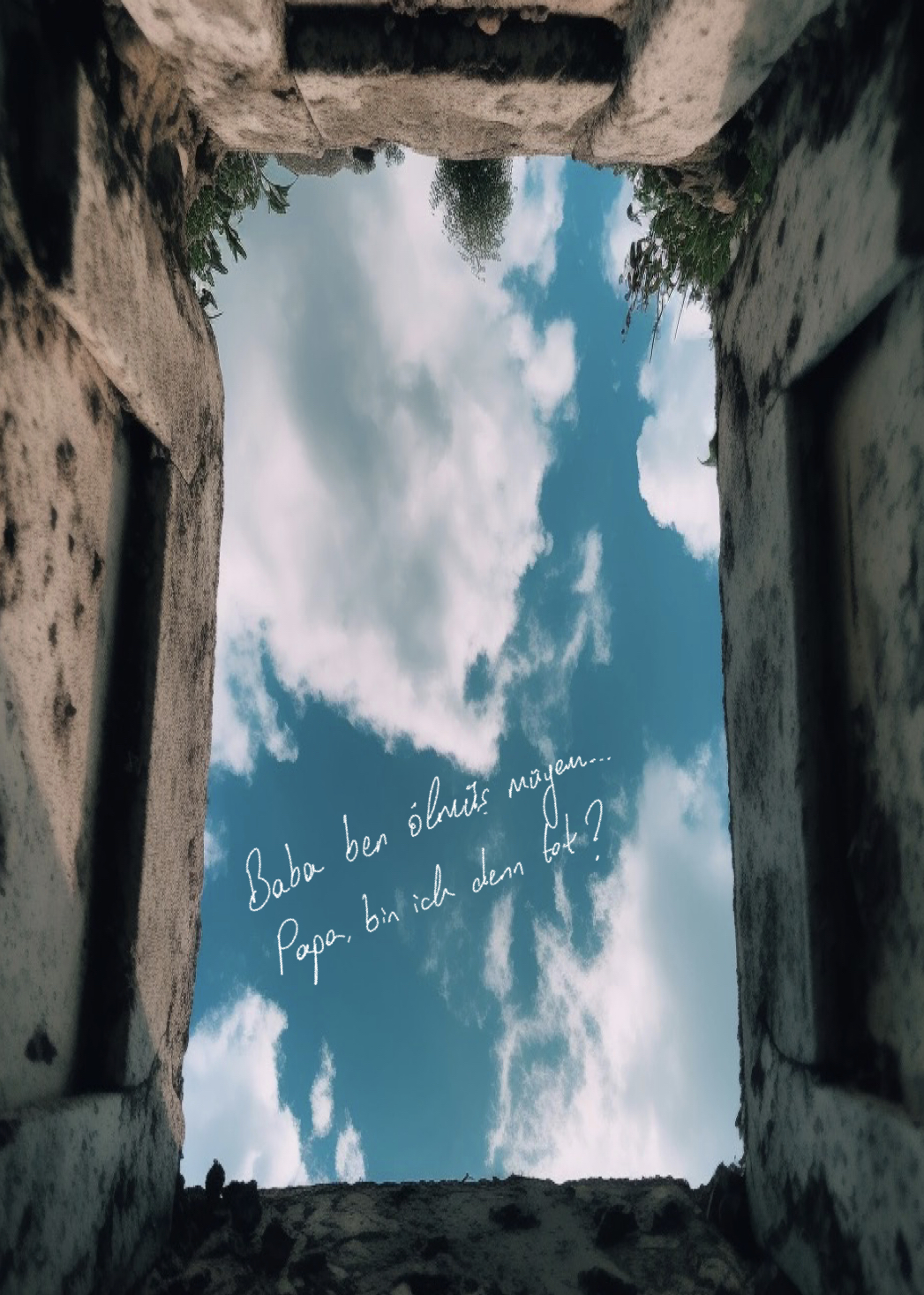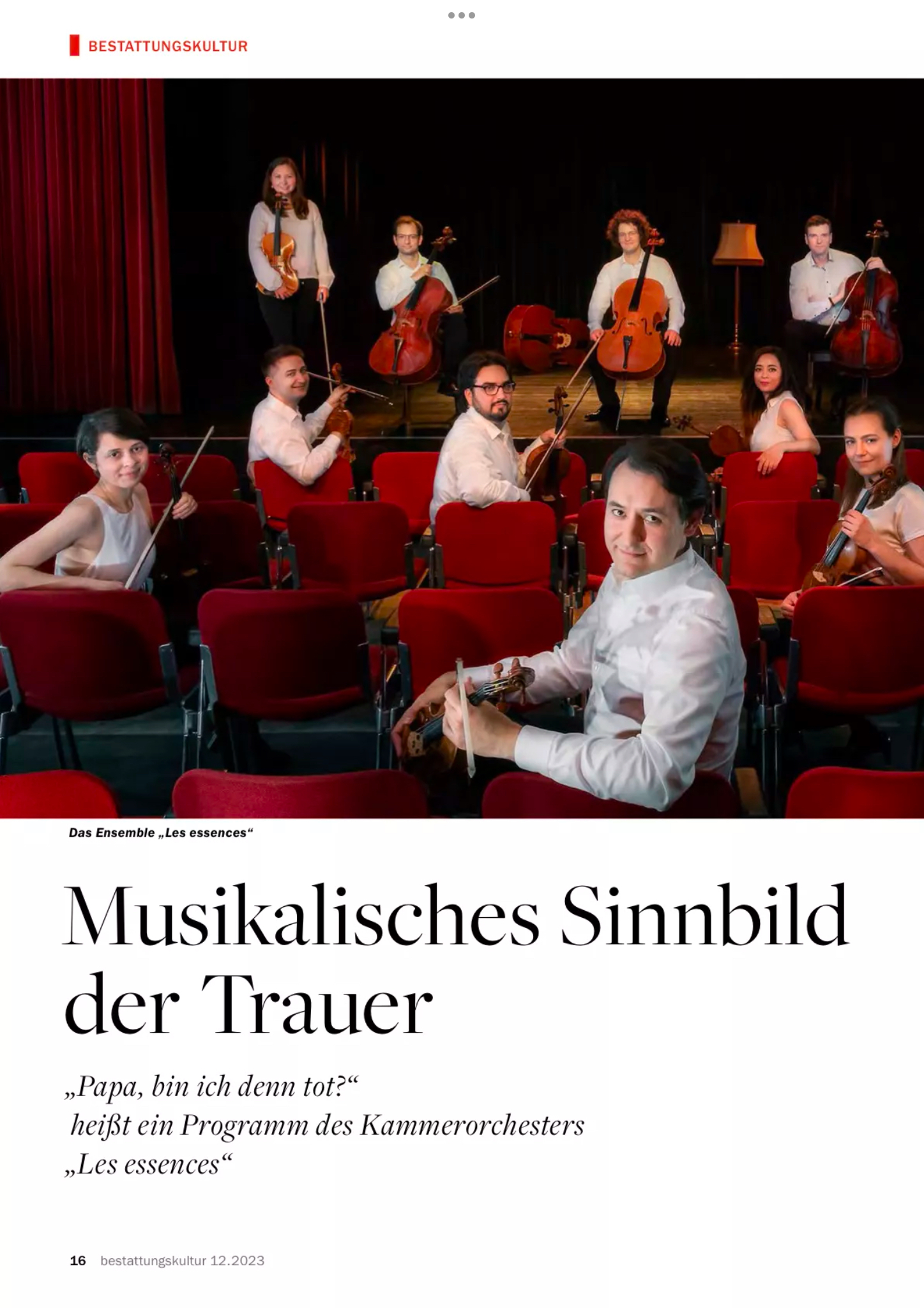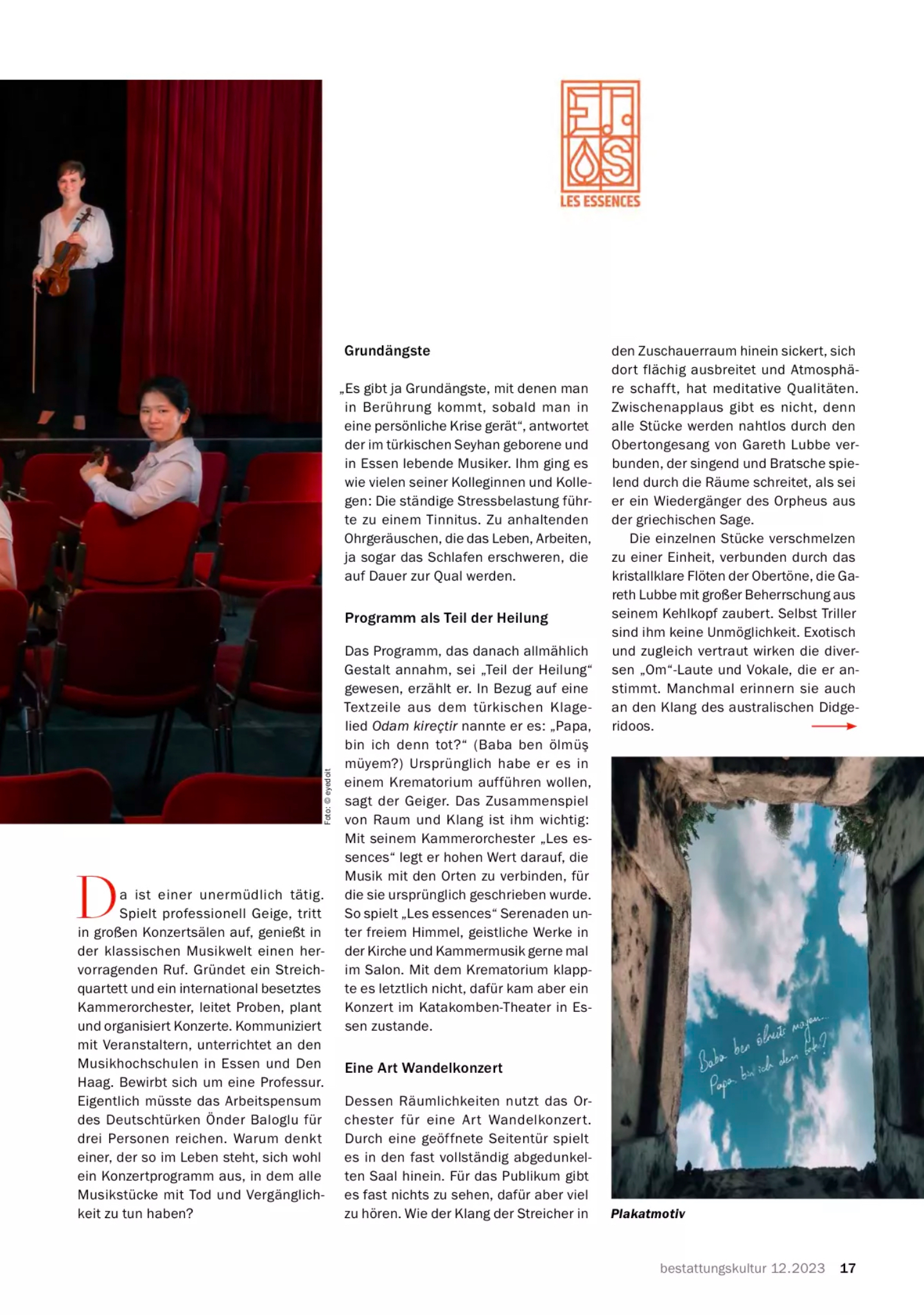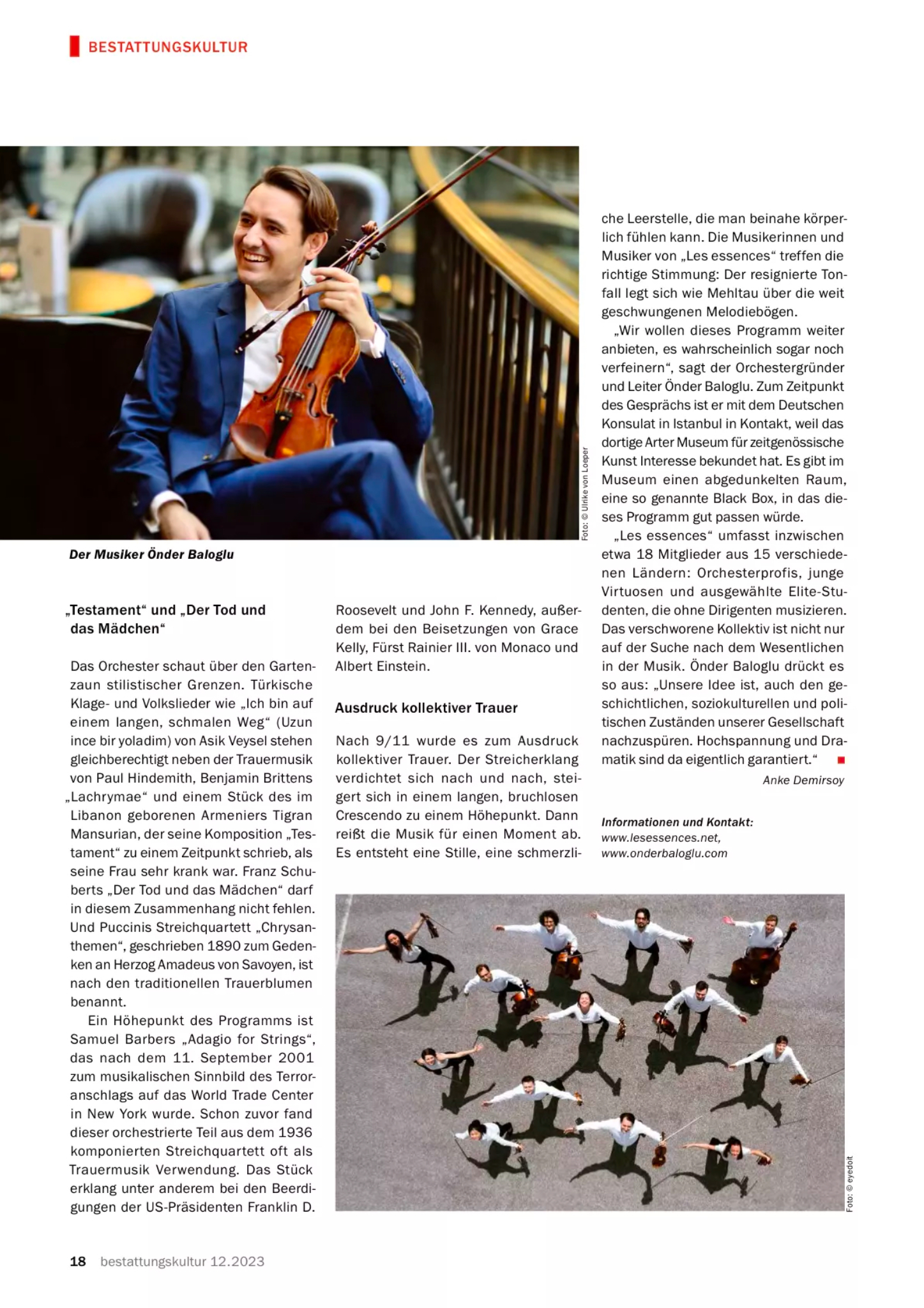BABA BEN ÖLMÜŞ MÜYEM?
PAPA, AM I DEAD?




There are different ideas, relationships, expectations, emotions, perceptions about death. So also something humorous: the life is a disease that is transmitted through sex and ends fatally. (Anonymous)
Where there is life, there is death. Most of the time it brings sadness. Man cannot escape both, but find ways to deal with it. We offer space for this in our concert - the audience can deal fully with the overwhelming emotions of death and grief in a dark room. The musical works either deal specifically with death or are at least distinguished by their serious character. There is also an exciting confrontation of - predominantly - western instrumental music with Turkish lamentations and folk songs, which are performed instrumentally in this concert.
He said why do you fight, when you know you will lose, he forgot, he was alive knowing he was going to die... (Özdemir Asaf)
Paul Hindemith, who undertook a concert tour to England in 1936, wrote the funeral music in a very short time under the impression of the death of the English King George V.
Benjamin Britten gave his 1950 composition the subtitle “Reflections on a Song by John Dowland”, and his starting point was not to deviate further and further from the melancholic original, but only to bring the theme in its original melodic and harmonic form at the very end .
The Lebanon-born Armenian composer Tigran Mansurian wrote his composition "Testament" when his wife was very ill. The piece has a meditative character.
Giacomo Puccini's piece "Crisantemi" was originally a very emotional funeral music, but this elegy soon found its way into the opera "Manon Lescaut".
The "Adagio for Strings" is an arrangement of the slow movement of a string quartet by the 26-year-old Samuel Barber. The undulating piece, which was also arranged as "Agnus Dei" for eight-part mixed choir, is heard on numerous occasions as moving music of lamentation, including at the American composer's funeral service.
ProgramM
Anonym-Yusuf Yalcin: Odam kireçtir
Aşık Veysel-Yusuf Yalcin: Uzun ince bir yoldayim
Anonym-Yusuf Yalcin: Ah bir ates ver
Paul Hindemith: Trauermusik
Benjamin Britten: Lachrymae
Tigran Mansurian: Testament
Franz Schubert: The Death and the Maiden
Giacomo Puccini: Crisantemi
Samuel Barber: Adagio
Gareth Lubbe Viola, Overtone Singing | LES ESSENCES | Önder Baloglu Concept, Violin, Direction
Born in Johannesburg, South Africa, Gareth Lubbe received his first musical training on the piano and violin at the age of four. Only five years later he made his solo debut as a violinist with orchestra in Johannesburg, followed by numerous prizes at regional and national competitions. He has also performed as a pianist with the South African Radio Symphony Orchestra and conducted the Johannesburg Symphony Orchestra. From 1995 to 2001 he studied violin at the Musikhochschule in Cologne and chamber music with the Alban Berg Quartet. After graduating, he studied viola with Barbara Westphal at the Lübeck Music Academy.
In 2006 and 2007 Gareth Lubbe was the solo violist in the Royal Flemish Philharmonic in Antwerp under Phillippe Herreweghe before moving to Leipzig, where he was the solo violist of the Gewandhaus Orchestra and taught viola at the Musikhochschule.
Lubbe gives guest performances as a soloist and as a chamber musician all over the world. He was invited as a solo violist with the Mahler Chamber Orchestra, with whom he performed regularly under conductors such as Claudio Abbado and Daniel Harding. In addition, especially in the field of chamber music, there were always new contacts with partners such as Claudio Bohorquez, Daishin Kashimoto, Alexander Lonquich, Fazil Say, Adrian Brendel and Baiba Skride.
Since 1996, Gareth Lubbe has maintained an intensive collaboration with the New Zealand multi-instrumentalist and composer Hayden Chisholm, with whom he has performed in numerous parts of the world. Composition commissions from the Deutsches Schauspielhaus Hamburg followed, as well as works with the artist Rebecca Horn. Lubbe was also a member of the ensemble "Gelber Klang", known in Europe for the interpretation of contemporary works and for improvisation workshops with young musicians.
As a celebrated overtone singer, Gareth Lubbe performs and conducts workshops worldwide. In 2005 he accepted an invitation from the Goethe Institute to perform at the ethnic festival in the Altay Mountains of southern Siberia, where this type of polyphonic vocal technique is a living element of folk music.
In April 2013 Gareth Lubbe was appointed Professor for Viola at the Folkwang University of the Arts.